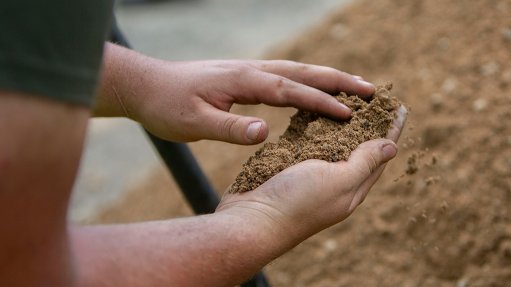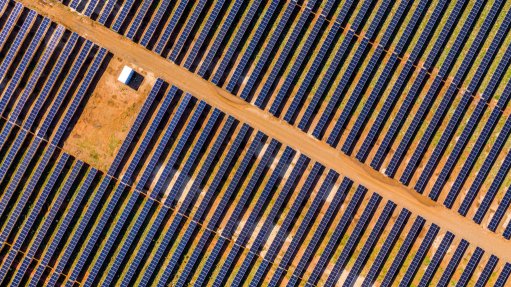AFD support, expertise delivers innovative solutions to protect, manage Durban’s river systems
The Agence Française de Développement (AFD) is providing support and expertise to the eThekwini metropolitan municipality to help with the implementation of its Transformative Riverine Management Programme.
The pioneering riverine management projects, in partnership with the municipality, AFD and Deutsche Gesellschaft für Internationale Zusammenarbeit (GIZ), as well as civil society groups and communities, combine ecosystem restoration, adaptation to climate change and the creation of economic opportunities for low-income populations.
The pilot projects embarked upon to date, with support from the C40 Cities Finance Facility, in which AFD is a funding partner and GIZ an implementing agency, include a strong focus on community involvement, capacity building and skills development.
“They have encompassed the employment of community cooperatives and the training and employment of local community members to assist with river health maintenance, waste management, monitoring and community awareness,” said AFD municipalities and urban development team project manager Zoé Ramondou.
“There has also been a focus on building skills and capacity in beneficiary communities extending beyond riverine management actions. This includes helping people making a living from waste upcycling and recycling while improving the health of their local rivers.”
Further, the insights and learnings obtained from Durban’s riverine management experiences so far are being leveraged to hone the city’s Transformative Riverine Management Programme going forward, with the ultimate aim of transforming some 7 400 km of riverine corridors.
Durban contains 18 major river systems, some of which extend far inland of the city boundary.
Over the past 30 years, deteriorating river water quality and more frequent flooding have caused escalating costs to the city, businesses and citizens, while alternating cycles of drought and flood have driven informal settlements into flood plains, resulting in extreme vulnerability and loss of life and property.
The projected impacts of climate change on Durban’s water systems include declining water quality, more intense flooding, reduced water availability and food security, Ramondou warned, highlighting the vast range of factors influencing the performance and liveability of riverine corridors, including solid waste like littering and dumping, sand mining, the status of riparian vegetation, the attenuation of surface runoff (through natural and artificial wetlands, canalisation or diversion measures), pollution and discharges from wastewater systems.
Three projects that have delivered valuable information on the establishment, implementation and planned upscaling of transformative riverine management projects are the Sihlanzimvelo project, the Aller River pilot project and the Green Corridors Green Spaces project.
The Sihlanzimvelo project, led by the eThekwini city department responsible for roads and stormwater maintenance, aims to remove litter, waste and invasive plant species from stream areas to reduce stormwater blockages and create employment for cooperatives formed by local residents, who have been equipped with the core skills needed to establish and run a cooperative, remove invasive alien plants, and comply with health and safety regulations.
“The community assessors play a wider role in creating awareness and behaviour change in the surrounding communities. This project was started in 2012 and its implementation is ongoing,” said Ramondou.
Led by environmental awareness protection community-based organisation the Kloof Conservancy, the Aller River pilot project is restoring sections of the Aller river with a focus on water quality improvement and invasive species removal.
The ongoing project, initiated in 2016, has a focus on training and empowering youth representatives through the Eco-Champs programme to undertake education and clean-up campaigns.
Meanwhile, the Green Corridors Green Spaces Project, which is led by city-supported special purpose vehicle the Green Corridors NPC, is working on community upliftment through the creation of a green spatial economy and enhancing local quality of life, living environments and sustainable livelihoods.
This project was initiated in 2010 and its implementation is subjected to a yearly review of its memorandum of agreement with the municipality.
“The eThekwini metropolitan municipality is building a case for upscaling riverine management to encompass all rivers in the city.”
“The latest development is a new study, which is supported by AFD and funded through the Cities and Climate in sub-Saharan Africa (CICLIA) financial facility, that will be integrated in the broader framework of eThekwini’s Transformative Riverine Management Programme, Ramondou added.
CICLIA is cofunded by the European Union, AFD and the Swiss Cooperation.
The study is around the planning and stakeholder mobilisation and involvement in three catchments across the Metro’s territory.
The study, while still at an early stage with tenders launched to recruit the right consultants to implement it, will improve planning and management through an integrated, multistakeholder approach at the catchment level.
“This study will help develop a business case for a pilot and very innovative catchment management strategy based on an integrated approach that enhances climate resilience and involves the communities that are most vulnerable,” Ramondou explained.
“The study, which will take a year to complete, is expected to deliver important insights and results that will not just benefit Durban and its residents, but could be used to help other cities around the world that share the same river management challenges.”
Article Enquiry
Email Article
Save Article
Feedback
To advertise email advertising@creamermedia.co.za or click here
Press Office
Announcements
What's On
Subscribe to improve your user experience...
Option 1 (equivalent of R125 a month):
Receive a weekly copy of Creamer Media's Engineering News & Mining Weekly magazine
(print copy for those in South Africa and e-magazine for those outside of South Africa)
Receive daily email newsletters
Access to full search results
Access archive of magazine back copies
Access to Projects in Progress
Access to ONE Research Report of your choice in PDF format
Option 2 (equivalent of R375 a month):
All benefits from Option 1
PLUS
Access to Creamer Media's Research Channel Africa for ALL Research Reports, in PDF format, on various industrial and mining sectors
including Electricity; Water; Energy Transition; Hydrogen; Roads, Rail and Ports; Coal; Gold; Platinum; Battery Metals; etc.
Already a subscriber?
Forgotten your password?
Receive weekly copy of Creamer Media's Engineering News & Mining Weekly magazine (print copy for those in South Africa and e-magazine for those outside of South Africa)
➕
Recieve daily email newsletters
➕
Access to full search results
➕
Access archive of magazine back copies
➕
Access to Projects in Progress
➕
Access to ONE Research Report of your choice in PDF format
RESEARCH CHANNEL AFRICA
R4500 (equivalent of R375 a month)
SUBSCRIBEAll benefits from Option 1
➕
Access to Creamer Media's Research Channel Africa for ALL Research Reports on various industrial and mining sectors, in PDF format, including on:
Electricity
➕
Water
➕
Energy Transition
➕
Hydrogen
➕
Roads, Rail and Ports
➕
Coal
➕
Gold
➕
Platinum
➕
Battery Metals
➕
etc.
Receive all benefits from Option 1 or Option 2 delivered to numerous people at your company
➕
Multiple User names and Passwords for simultaneous log-ins
➕
Intranet integration access to all in your organisation


















